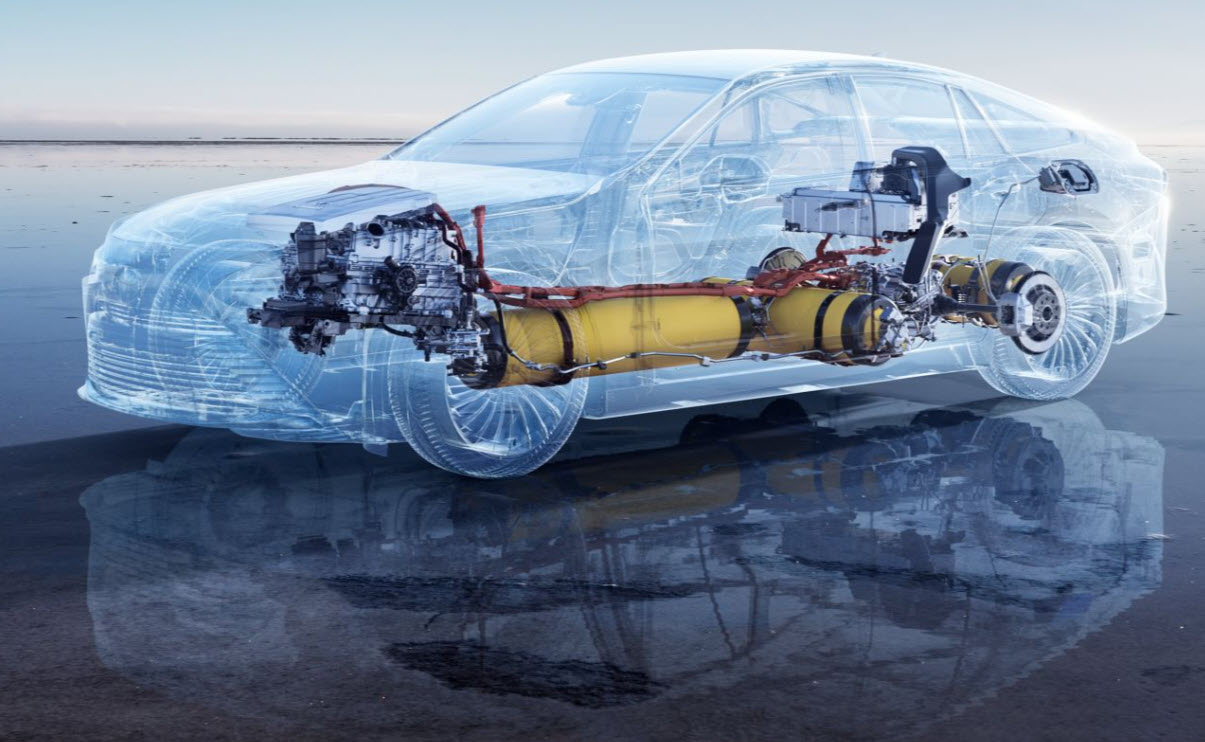Amidst California’s ongoing efforts to promote environmentally friendly transportation and the changing landscape of hydrogen fuel infrastructure, Toyota has announced a dramatic rebate of up to $40,000 off MSRP for the 2023 Toyota Mirai.
Oh boy, what a comment section.
“You’re not green!”
“No, you’re not green!!”
…
Wow.Kabloiey
How about… this is absolutely not environmentally friendly?
Then you are repeating an argument from the oil industry. To them, all green vehicles are secretly dirty, and therefore you must always buy an oil powered car.
See my comment here in this answer to someone who just asked for arguments instead of making shit up.
You can make it 100% with fossil fuels and it would still be greener than a gasoline or diesel powered car.
Not really. Hydrogen cars are horrible for carbon. They just cannot compete with electric for efficiency. You’re bound by the laws of nature to have extra losses. The only argument hydrogen shills have is about “muh lithium” which isn’t really an issue longer term. It’s already recycled, whereas hydrogen is bound to have less efficiency forever, as compared to an electrical cable.
That’s pure gibberish. An FCEV is also an electric car. It has the same theoretical efficiency as a BEV.
That’s pure gibberish.
You just cannot avoid having losses with an extra conversion step. Any source of energy you can fathom can supply electrical current to the car. Directly via cables. If you convert said energy to hydrogen, then back to electric, you are bound to have extra losses, thus the car polutes more, as it uses more fuel for the same distance. There’s literally no way around this, in this plane of existence, and there’s literally nothing you can do about it.
The “conversion” steps are functionally the same as what happens inside a battery. Which is why the theoretical efficiency is the same as a BEV. You are effectively doing the equivalent of battery swapping, just with a fluid rather than a solid battery pack.
What? Are you shamelessly lying?
Do you know what a fuel cell even is? It is an electrochemical system that converts chemical energy directly into electrical energy. That is why FCEVs are also EVs.
You’re just regurgitating blatantly Tesla propaganda. They are lying about the merits of FCEVs vs. BEVs. An FCEV is equally valid as an EV as any BEV.
The oil industry has been rooting for hydrogen cars as their favourite alternative to combustion engines as most hydrogen is produced from fossil energy carriers. It’s the oil industry’s backdoor to remain the mobility supplier as methane based hydrogen dominates the market and will remain cheaper than green hydrogen unless the whole world agrees on proper taxes, which it won’t. Hydrogen cars are emission free but hydrogen isn’t. And while the same can be said for electric cats, the shift to renewable energy sources is already happening there and the higher efficiency already makes BEVs more environmentally friendly than ICEs, unlike hydrogen cars.
The same is also happening with hydrogen. We are shifting towards green hydrogen. People who claim otherwise are repeating the same anti-green rhetoric used against BEVs.
What green hydrogen? Where?
You’re clearly stuck in the past. Green hydrogen production is rapidly expanding. It is the new solar or wind boom.
The oil industry has been rooting for hydrogen cars as their favourite alternative to combustion engines
I’m pretty sure the real reason is that they need to sell you something. Hydrogen handling means exclusivity and they can control energy prices this way. Having solar panels is a big problem apparently, we’re not “allowed” to escape their control. Not sure we plebs can do anything about them pushing hydrogen constantly.
No one is going to meaningful control hydrogen prices in the long-run. It can be made via renewable energy like wind and solar. So it will have the same level of cost. Which is to say it will cost very little as wind and solar cost very little.
No one is going to meaningful control hydrogen prices in the long-run.
And this is why we have so many people campaigning against it.
It’s more expensive because you have to have an extra conversion of energy which is bound to be lossy. There’s no way it makes sense apart from them having something THEY control and sell you, that’s it. The only realistic uses for it is for heavy machinery in remote places.
You can literally make it yourself. This replaces having to need giant banks of batteries, as well reduces the need for grid capacity increases. Furthermore, you need energy storage in general. That implies that even BEVs will need hydrogen for energy storage for long durations. As a result, there’s not likely to be any meaningful increase in cost. And since wind and solar are so cheap, efficiency is not particularly irrelevant. The margin cost of production is basically zero anyways, so none of that matters. It will be far cheaper than fossil fuels in the long-run.
More carbon from hydrogen when you add up all that crazy infrastructure and safety related to hydrogen manufacture and transport which will be made via special trucks and stuff as compared to an electrical cable. You cannot and will not ever compete with a copper cable. You have to resort to plain lying for the hydrogen shill to make any god damned sense.
How? Why? Care to elaborate?
Hydrogen, even if you make it 100% via electrolysis with solar power, is extremely inefficient. In the order of regular ICE cars inefficient. You piss 2/3 of the energy away while having the complexity of a BEV plus additional hydrogen on top. It is worse in every way except range. Unlike batteries, filling up H2 at the fuel station is not getting faster with every generation. Unlike batteries, the range does not increase with every generation. Unlike batteries, the price does not go down sharply. Unlike batteries, the longevity of the fuelcell is shit.
Fuel cells are far more efficient than ICEs. Refueling times are already comparable to that of an ICE car. Fuel cells can easily last the lifetime of the car. Range increases with every model. This is anti-progress and anti-green nonsense. You’re pretty regurgitating corporate propaganda, either from the oil industry or from battery companies.
Hahaha, more efficient that ICE? 70 % hydrogen production 70 % storage 70 % fuel cell Leaving out everything else, where does that get us?
Fuel cells last 100’000 miles. Simply calling that “like if the vehicle” is absurd.
Anti Green is pissing away 3x as much energy to make sure stuff stays the same.
All steps can approach 100% efficiency. It is not much different than how a battery car works.
Fuel cells have already been test to 30,000 hours in real world settings. We’re easily looking at million+ miles in certain circumstances. This is plain Ludditism to think that reliability can’t be achieved.
Interesting. From what I’ve seen most of the tech that is used or being researched to produce hydrogen using electrolysis ranges from LTE (low temp) the least efficient at 70-80% to HTE (high temp), PEM (proton exchange membrane) and others using chemicals range ,from 70-90% efficient. You are correct in saying that the current cost constraints is the cost of the electricity being used. However with the amount of energy and the effects of strip mining processing and environmental effects. Hydrogen has just as much potential if not more as a future alternative to ICE.
Oh and according to Toyota on their Miria hydrogen vehicle it only takes ~5 mins to refuel.
Thanks for elaborating. It opens the discussion and understanding of potential mindset against this tech.





